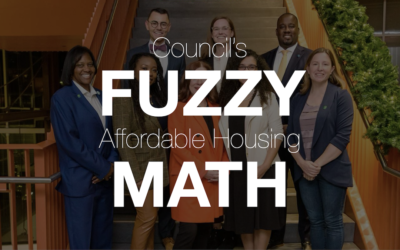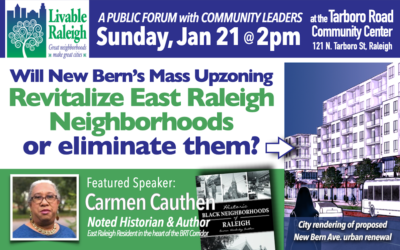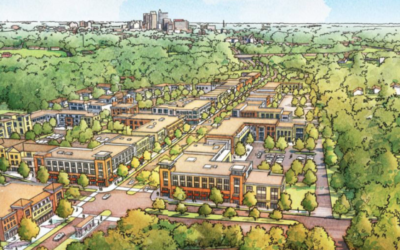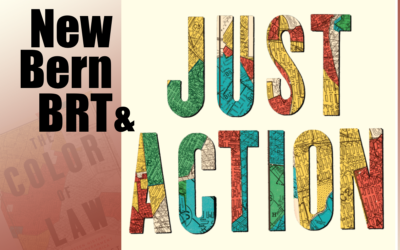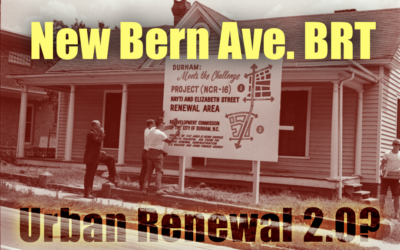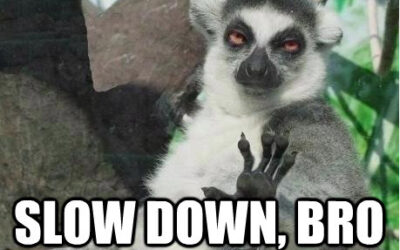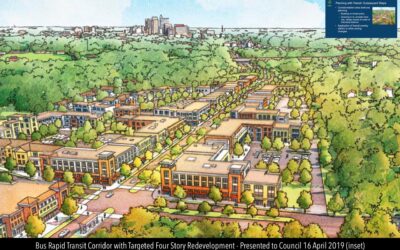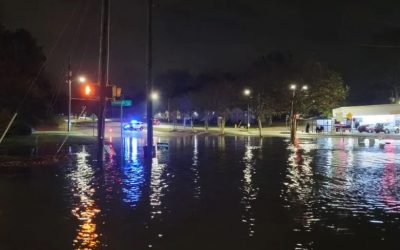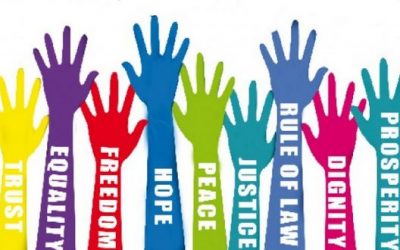Day two of Council’s annual retreat kicks off on January 25th with a discussion of affordable housing. It will be interesting to see if Mayor Cowell can convince her fellow Councilors to move beyond the kinds of fuzzy math that has concealed the real size and causes of Raleigh’s affordable housing crisis. Effective solutions will be fact-based, data driven and will reform current growth rules that promote the loss of five thousand affordable units each year.
Dear Ned
When elections finally occurred in 2022, Knight was ousted by the voters, and 4 new members of Council were elected, each with Livable Raleigh’s support.
Public Forum: Will New Bern’s Mass Upzoning Revitalize Neighborhoods or Eliminate Them?
Join us on Sunday, January 21st at 2pm at the Tarboro Road Community Center (121 N. Tarboro Street, Raleigh) to learn how you can help stop the city’s urban renewal of New Bern Avenue. Stand up for Raleigh’s Black history and for revitalizing existing neighborhoods and businesses along the New Bern Avenue Bus Rapid Transit line rather than forcing them out.
Livable Raleigh’s Vision for Raleigh’s Sustainable and Equitable Growth
Raleigh is growing rapidly. Where are we headed? Most Raleighites like the idea of growth that is more economical, environmental and equitable. To succeed, we’ll have to grow in ways and in locations that bring fewer cars, more trees and more equitable prosperity.
New Bern BRT: Bait & Switch or Just Action?
In 2017, ‘The Color of Law’ landed like a bombshell in progressive housing policy circles. In Raleigh, powerful development interests saw the opportunity to adopt — some would say co-opt — Richard Rothstein’s anti-segregation message by promoting pro-density zoning rules that not only lifted exclusionary zoning rules, but went much further. By 2020, a new alliance of developer money, self-righteous Council aspirants and their white privileged adherents provided the lubrication to fast track pro-density zoning proposals. Novice Councilors were assured that pesky public input needn’t impede this sweet deal to meld profits and equity.
New Bern Avenue Bus Rapid Transit: Urban Renewal 2.0?
The difficult question for the Planning Commission and City Council is this: Rather than continuing to chip away at the overlay zoning’s many inequitable impacts, are you willing to call for an alternate staff proposal that puts less emphasis on rapid economic redevelopment and more emphasis on best practices that will achieve equitable revitalization without dislocation?
Slow down to ensure an equitable BRT
We are at a crossroad. Let’s slow down, hear more from the affected community members, implement tools and policies that prioritize affordability and displacement mitigation, and establish a robust metrics plan. In doing so, we can ensure that the New Bern BRT upzoning project becomes a model of equitable development that truly serves all residents.
BRT Transit that Benefits All and Displaces None
New Bern Avenue is living proof of the bigoted depredations our country and city have imposed on Black Americans. It is also living proof of Black Americans’ determination to fashion lives and communities of faith and hope in the face of overpowering forces of greed and racism. Of all projects which have the potential of restorative justice and to make good on Raleigh’s pledge to dismantle the city’s policies and systems of racial inequity and oppression with equitable transit, this is it.
Forced out, priced out, shut out, taxed out
I have lived in College Park all my life. On the corner of New Bern Avenue and Raleigh Boulevard it has flooded for over a decade. So you mean to tell me that over a decade you’re only going to fix this for Bus Rapid Transit. You talk about environmental justice. You know this council just celebrated Juneteenth and that is the most racist thing I’ve ever heard.
Protect Democracy, Freedom & Human Rights
There are a lot of attacks on democracy, freedom, and human rights that are coming out of the General Assembly these days. Attacks on reproductive health care (including abortion), trans youth, fair elections, education, etc. What are you as our elected City Council going to do to resist this acceleration into fascism that is happening in the state?

